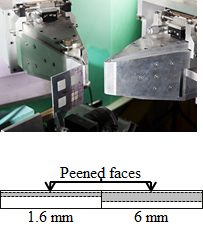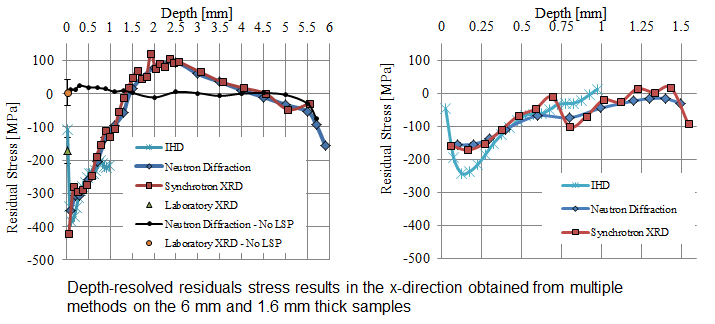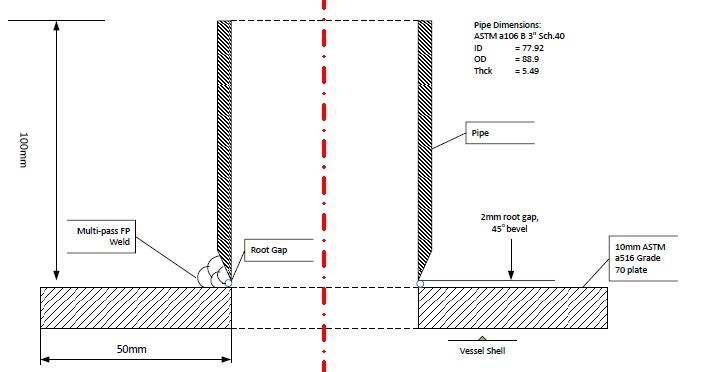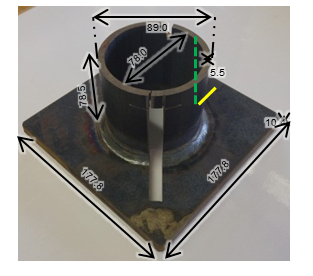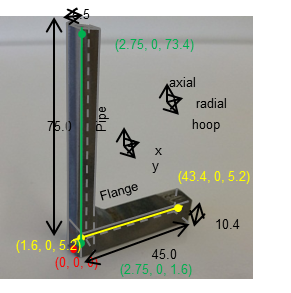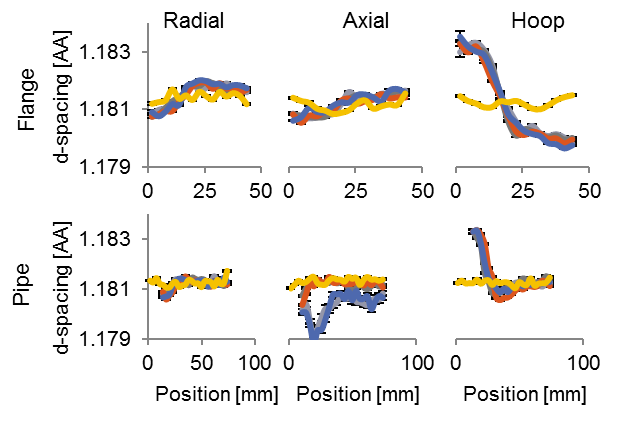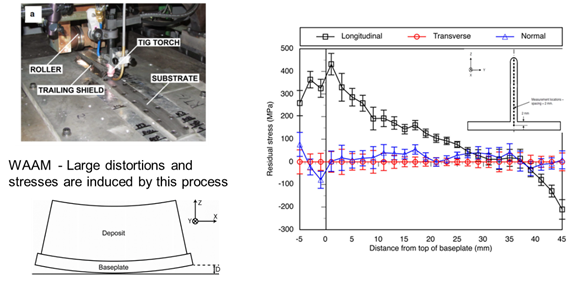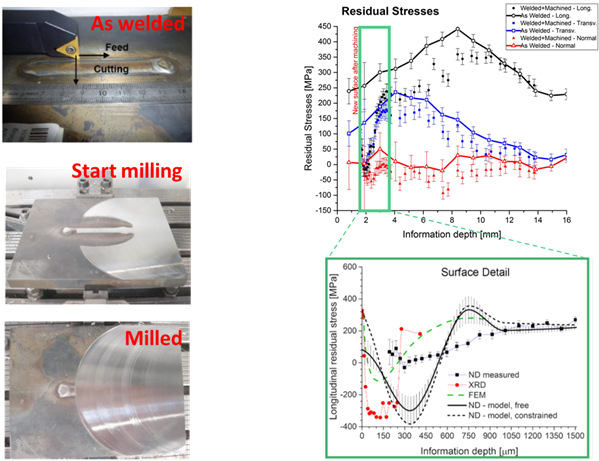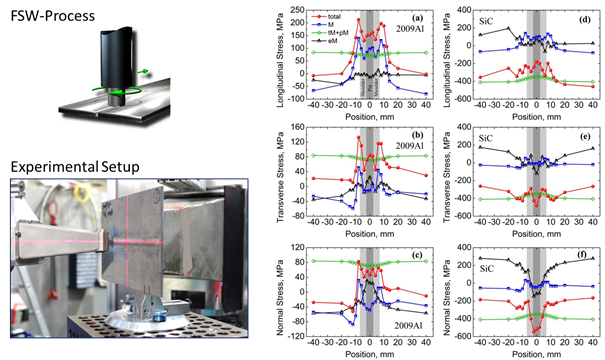Neutron diffraction is a powerful tool for an accurate and non-destructive analysis of residual stress fields within metallic, ceramic and composite (polycrystalline) engineering components. The technique takes advantage of the neutron’s penetrating power into most engineering materials (few millimeters for steel and up to few centimeters for aluminum) combined with the sensitivity of diffraction to detect changes in the lattice spacings within grains of polycrystalline materials. This allows a 3-dimensional depth-resolved determination of the complete stress tensor within real-sized engineering components.
Neutron strain scanners (NSS) are dedicated instruments for neutron diffraction stress analysis, equipped with state-of-the-art measurement systems, sample manipulation systems and sample environments. NSS are available in steady-state reactors and pulsed neutron sources worldwide, providing access to the neutron diffraction technique for academics and industrial users, offering the capability to perform a broad range of experiments from fundamental scientific studies to characterization of industrial components.
Neutron strain scanners across Europe have initiated a project to consolidate different instruments and ensure the participating NSS work and perform within a certain standard defined by the Neutron Quality Label (NQL), which adheres to a common calibration protocol and reporting standard. This aims at instilling awareness and confidence within the community on the precision, reliability, reproducibility of the technique, quality and accuracy of results and interchangeability between NSS.
The work was carried out through the Work Package 2 (WP2) of the BrightnESS2 European project.

